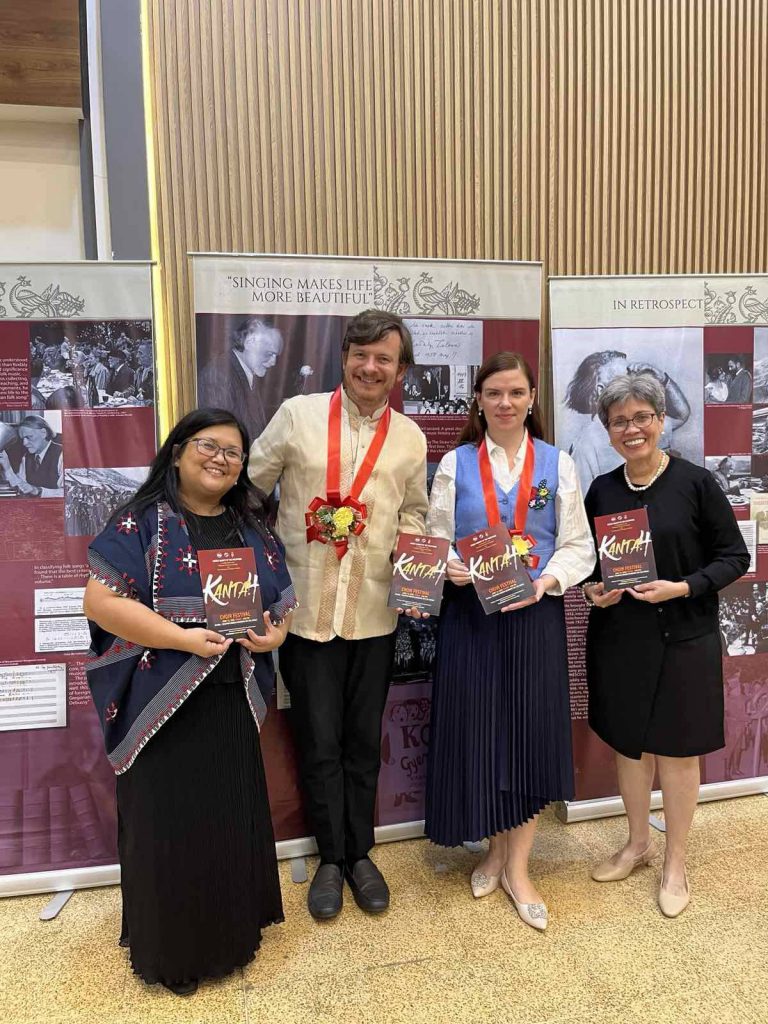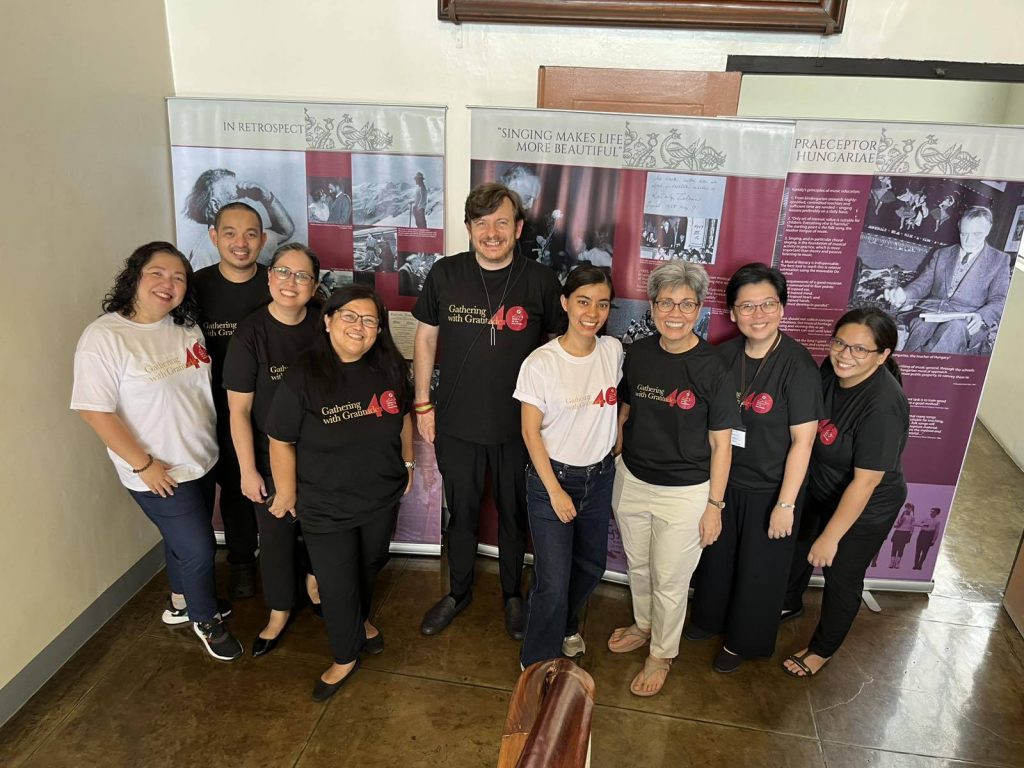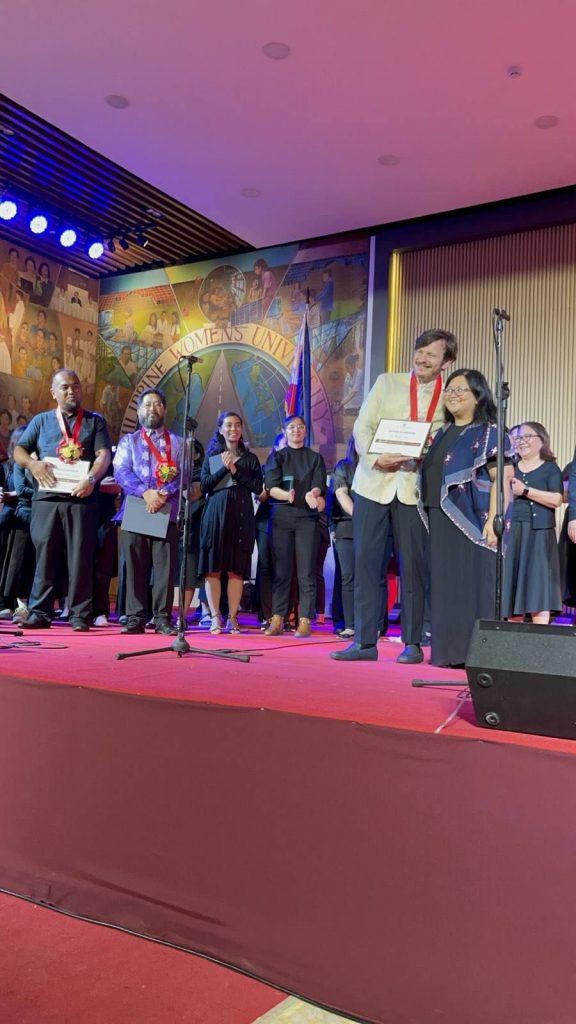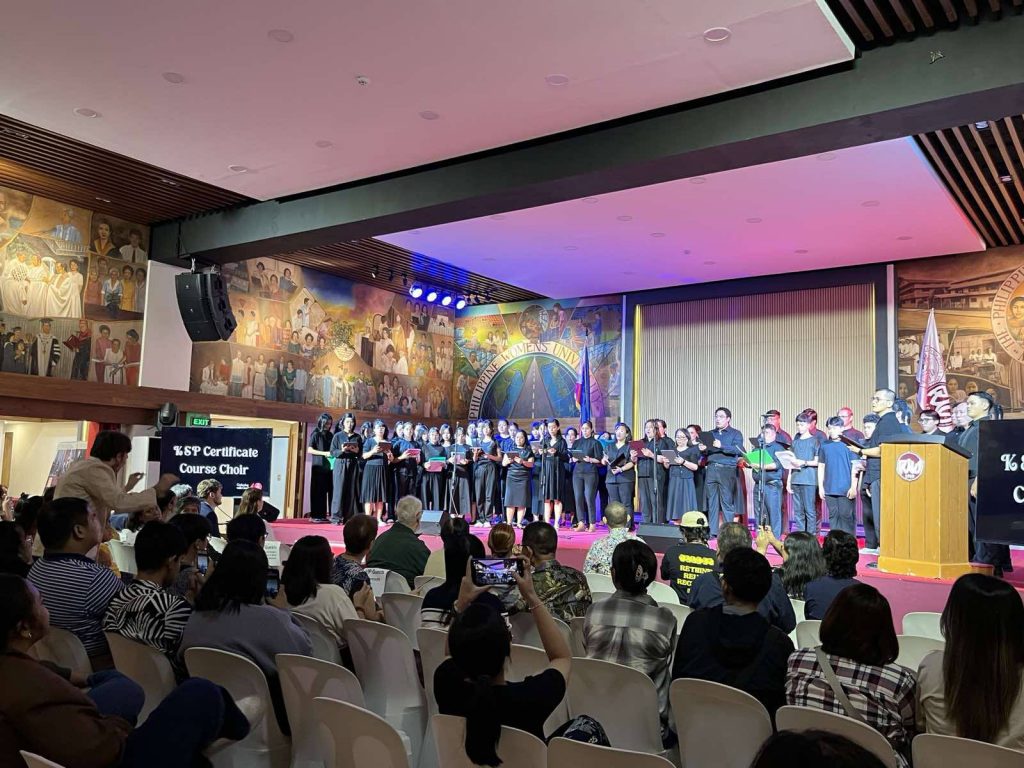Hungary’s musical legacy of Kodály harmonizes with the Philippines
“Music is a manifestation of the human spirit, similar to language. Its greatest practitioners have conveyed to mankind things not possible to say in any other language.”— Zoltán Kodály
On a warm Friday evening, the storied walls of Benitez Hall at the Philippine Women’s University reverberated with something truly special—not just music, but memory, movement, and meaning.

KANTA!4: Gathering with Gratitude, a choral concert hosted by the Kodály Society of the Philippines (KSP) in partnership with the Embassy of Hungary in Manila, was a milestone and a heartfelt crescendo in a four-decade-long symphony of cultural exchange, harmony, and hope.
The evening marked two landmark anniversaries: 50 years of the International Kodály Society and 40 years of the Philippine chapter’s tireless work in transforming music education across the archipelago.
At the heart of it all was a two-week intensive workshop led by Dr. Árpád Tóth, a dynamic Hungarian choral conductor whose passion for the Kodály method lit a fire in the hearts of over 200 Filipino music educators and students.

And when those voices joined together in song—seven choirs, hundreds of singers—the result was a performance and a powerful affirmation of Kodály’s enduring belief: that music belongs to everyone, and that every child, regardless of background, deserves a high-quality music education that resonates with their cultural identity.
The concert was the culmination of immersive sessions on choral repertoire, rehearsal techniques, and musicianship—all grounded in the Kodály philosophy of singing as the foundation for musical literacy.
For many participants, it was a return to roots, a rediscovery of joy, and a renewed commitment to their craft as teachers and performers.

To honor this journey, the Embassy of Hungary opened a commemorative exhibition celebrating Zoltán Kodály’s life and legacy. Since its reopening in 2017, the embassy has been a dedicated partner in nurturing the cross-cultural bridges that Kodály himself would have championed—bridges that connect Budapest to Baguio, Debrecen to Davao, through the universal language of song.
During the event, KSP President Roselle Elinore H. Matias presented awards to two women who have long carried the Kodály torch in the Philippines: Ms. Carolyn K. Cheng, vice-president of KSP, and founding member Mariam B. Factora. Their decades of dedication have ensured that the Kodály spirit—rooted in deep musicianship and love for culture—continues to thrive in classrooms and choirs from north to south.
Established in 1985, the Kodály Society of the Philippines has not only trained teachers—it has changed lives. Through seminars, collaborations with international experts, and its community of passionate advocates, the Society has become a quiet but powerful force for music education reform in the country.

KANTA!4 was a celebration of all this: the voices that came before, the mentors who continue to teach, and the young singers just discovering the magic of harmony. It stood as a joyful reminder that music, when taught with love and cultural respect, doesn’t just train singers. It builds communities, inspires hearts, and elevates the spirit.
In a world growing increasingly divided, events like KANTA! remind us of what we share—a song, a story, a soul. And in that shared space, Hungary and the Philippines find themselves not so far apart.


No comments: